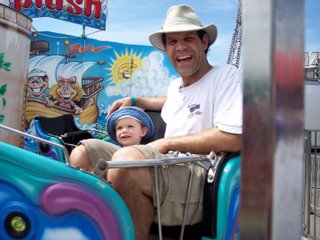Unbelievably, I stand on the cusp of graduation from Vermont College's MFA in Writing program. Two more days, then I'm kicked out of the nest, shooting down the tube, pick your metaphor, out of here. Let me put in a plug for VC here. I've not had a workshop here, not once, where I didn't learn something. Neither was I kicked in the head here, as I have heard over and over from so many wounded MFAs in other programs. The faculty here stand out for their commitment to their students and for their personal achievements. That's the commercial, on to the substance.
Best things about this residency:
1. The twin themes of persistence and compassion. (There isn't an official theme. Those are the two things I heard over and over this residency that resonated with me.) Our advisors, the faculty, are very much committed to making sure we have a nurturing experience that prepares us to go out and thrive as writers and be a part of our own communities.
2. Wally Lamb. His latest project is
Couldn't Keep It To Ourselves, an anthology of stories written by women incarcerated in Conneticut, under his tutelage. One of the contributors won a PEN award. Wally spent five days here visiting with the students, meeting one on one on a first-come, first-served basis with a few of us, and I was one of those, having been in the right place at the right time. Wally had plenty of practical advice and experience to share on the subject of bringing creative writing into institutions. He spent a good amount of time talking with me about archetypes, persistence, and my current novel as well. His other books are
She's Come Undone and I
Know This Much is True. Here's what I loved most about him; talking informally to a group about how the prison project was almost dashed and how the women were frightened and demoralized by prison officials and the Conneticut Attorney General, he cried. It was his wedding anniversary the night he read, and he thanked his wife, Chris Lamb, and he cried. When reading a moving piece from his novel-in-progress, he cried. (I felt much better about having blubbered when telling him the end of my first novel,
Home Star. It gets me every time.)
Here's some notes from the informal talk he gave: "Write stories for yourself and then let the audience who needs you, find you." "Teaching informs writing and writing informs teaching. Do them together." He said teaching put him on the receiving end of new voices. He said the question 'if God is merciful, why is there suffering?' is "a question I've been trying to work out since age 15. I try to work it out in my novels."
3. Nancy Lagomarsino. She wrote a non-fiction account of her father's passing from Alzheimer's
Light From An Eclipse. She said "suffering must be present if we would enjoy the landscape." She talked at length with a group of us about her decision about what to include and not include in the memoir, and how she came to give her mother the decision about whether the book would be published or not. I thought that was amazingly generous and a refreshing change from the stance I hear so often from memoirists that 'it's my truth, so I get to say what I want, regardless.' I appreciated her comments about balancing narrative, action and reflection, as well.
4. Andre Dubus III. He wrote
House of Sand and Fog and
The Blueseman. Andre is a larger-than-life, high-energy kind of guy who was genuinely interested in us, where we came from and what we were working on. His main message was "Go deeper" meaning not only to inform the fiction and make it readable and believable, but to search for truth. He shared how he keeps a file for ideas and how the plot of
House came to be plucked from the headlines, as it were. He read from an essay he wrote based on interviewing a young Iraq war veteran and the damage she's sustained.
On a personal note, I missed my kids terribly last night at the fireworks. (New England towns stagger their fireworks, so Montpelier had theirs last night.) Sweet Pea and Big Boy would have loved it. Instead, I had the company of other women writers and we talked about teaching, outreach to people who don't ordinarily have access to writing programs, and of course, our children. I am so fortunate. There are so many voices out there who don't have the freedom to write, who we need to hear. As we celebrate Independence, let's work to bring it to everyone -- and I'm not just talking about the political prisoners in far-off countries. I'm talking also about the women who labor dawn to dusk to keep their kids heads above water, who have important stories but for whom writing is just another pretty fantasy.
Tonight I go pick up Larry. The kids are home with Gramma Jeannie, Bless her. We had a trial run in April when Larry and I went to Billings for our first overnight alone in six years. That went beautifully. This is four days. I hope the kids behave and I hope they make it through okay, emotionally. We won't know, will we, until they're 21 years old on the therapist's couch clutching a teddy bear, re-enacting the conversations with me on the phone "Mommy come home airplane right now."
